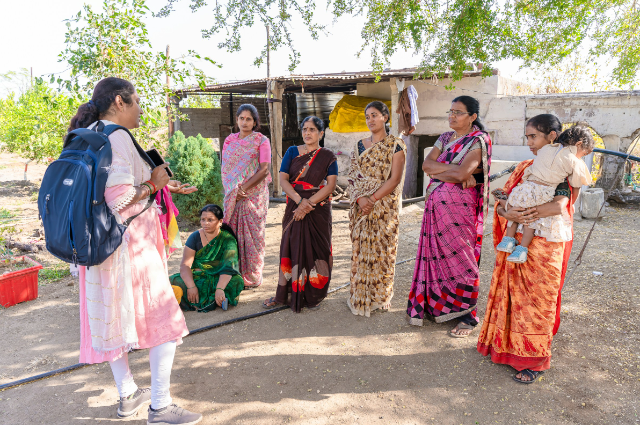
Photo by EqualStock on Unsplash
The Chhattisgarh Forest Department has embarked on a remarkable journey to improve the economic conditions of women in the state through various schemes and programs. Under the guidance of Chief Minister Vishnu Deo Sai, the department has been actively providing training and financial assistance to encourage women's participation in forest conservation and livelihood activities.
Involving Villagers in Forest Management
The Chhattisgarh Forest Department has paved the way for the economic empowerment of villagers by involving them in forest conservation and management. The Joint Forest Management formed by local villagers has been playing a crucial role in forest conservation and has been provided training by the Forest Department to improve the livelihood of people dependent on forests.
Maa Mahamaya Self-Help Group: A Success Story
The Maa Mahamaya Self-Help Group (SHG), comprising 11 women from Madai village in the Marwahi Forest Division has transformed a simple agro-forestry initiative into a flourishing economic enterprise. In 2018-19, the group planted 2,000 trees under the Green India Mission to enhance green cover improve soil moisture conservation, and provide sustainable employment opportunities to the local community.
Mango Cultivation: A Fruitful Venture
In 2022-23, the Maa Mahamaya SHG earned seven lakh rupees by selling 4,203 kg of mangoes in local markets and in Bilaspur. Inspired by their success, the group has been planning to purchase e-rickshaws for the transportation of their cultivation.
Empowering Women and Creating Employment Opportunities
The SHG President, Meera Bai, expressed her gratitude to the Forest Department for their continuous support which has enabled the group to cultivate high-quality mangoes and vegetables. This has led to a significant increase in the empowerment of women in the group and has created new employment opportunities in surrounding villages. As a result, the standard of living of women has been elevated.
The Chhattisgarh Forest Department's initiatives have not only improved the economic conditions of women but have also fostered a sense of community and environmental stewardship. By involving villagers in forest conservation and management, the department has created a sustainable model that benefits both the people and the planet.
Promoting Sustainable Development and Women Empowerment in India
In India, the Chhattisgarh Minor Forest Produce Cooperative Federation (CMFPF) and Women Self-Help Groups (SHGs) have been celebrated for their substantial contributions towards sustainable development and women’s empowerment. Both organizations play distinct but complementary roles in fostering economic growth and self-reliance in rural areas. The CMFPF primarily focuses on enhancing the livelihood of people who gather minor forest produce (MFP), while SHGs concentrate on empowering women through collective efforts and encouraging savings.
CMFPF: Enhancing Income and Infrastructure
The CMFPF's core mission is to support the collection and trade of minor forest products which include natural resources like fruits, seeds, and leaves collected from forests. By developing these products and creating better infrastructure, the CMFPF aims to improve the earnings of MFP gatherers, many of whom rely on this activity for their livelihoods. This effort not only contributes to the local economy but also promotes environmental sustainability by ensuring that forest resources are used in a way that preserves the ecosystem.
Women SHGs: Empowerment Through Collective Action
Women Self-Help Groups (SHGs) are grassroots organizations that have been instrumental in transforming the lives of women in rural India. These groups provide a platform for women to come together, save money, and support each other in small businesses or other income-generating activities. SHGs are not just about economic empowerment but also about building confidence, leadership, and decision-making skills among women.
Recognition at the ESG GRIT Awards
The outstanding work of the CMFPF and SHGs was acknowledged on a global stage when they were awarded the ESG GRIT Awards in Singapore. This prestigious recognition highlighted their dedication to sustainable development. A significant factor in this achievement was the collaboration with CorpStage, an organization that played a pivotal role in establishing a partnership with City Development Limited Singapore. This real estate company initiated a skill development program aimed at empowering women SHG members through IT training.
Skill Development Through IT Training
The program's primary goal was to provide women in SHGs with the digital skills necessary to thrive in a modern, competitive market. By equipping them with laptops and conducting training sessions on Microsoft Office tools and other IT technologies, the program sought to enhance their ability to manage finances, market their products, and make informed decisions. This initiative gave these women the tools they needed to increase the efficiency and marketability of their products, paving the way for their economic independence and boosting their visibility on a global scale.
Continuing Efforts for Ongoing Empowerment
The program’s impact has been profound, but it doesn’t end here. CorpStage is committed to expanding the initiative by acquiring more laptops and training more women. They aim to create a cycle of continuous learning and skill development, ensuring that more women from SHGs can benefit from this opportunity. This ongoing support will help to empower future generations of women by enabling them to contribute more effectively to the local and global economy.
Bridging the Digital Divide for Sustainable Development
This initiative is more than just a skill development program; it represents a broader effort to bridge the digital divide that often separates rural communities from the benefits of technology. By providing these women with digital tools and training, the initiative empowers them to participate in a rapidly digitizing world. Importantly, this aligns with the global Sustainable Development Goals (SDGs) which emphasize gender equality, economic growth, and responsible consumption.
The efforts of CMFPF, SHGs, and their collaborators showcase the powerful impact that well-planned initiatives can have on sustainable development and women's empowerment in rural India. This program serves as a model for how communities can be uplifted through access to technology, skills, and collaborative efforts leading to long-term economic and social transformation.
. . .
References:
